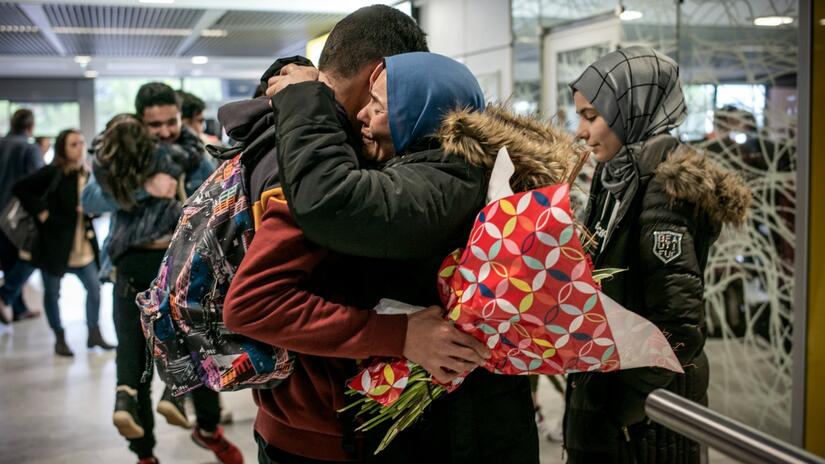Budapest/Geneva, 13 May 2022 – Ahead of the International Day of Families on 15 May, the Red Cross and Red Crescent Movement is expanding its family reunification services with a new initiative.
The Reunification Pathways for Integration (REPAIR) project is co-funded by the European Union’s Asylum, Migration and Integration Fund (AMIF), and enables safe and legal family reunification in the EU by assisting beneficiaries of international protection and their family members before, during and after arrival.
The three-year project is led by the International Federation of Red Cross and Red Crescent Societies (IFRC) in partnership with the Austrian, British, French and Slovenian Red Cross and the International Committee of the Red Cross (ICRC).
National Red Cross Societies in these four countries are scaling up their support by offering a range of services including counselling, visa application support, socio-cultural orientation sessions, psychosocial support and language classes. They also provide integration support to help family members reconnect after a long period of separation.
Building on the Red Cross Red Crescent Movement's longstanding work with migrants and refugees, the project aims to improve and expand the current service provision through the development of new tools and approaches, also to be shared with key stakeholders. Activities in the programme will contribute to the improvement of the Family Reunification journey for affected communities and a strengthened network of agencies in Europe and beyond.
IFRC Europe Regional Director, Birgitte Ebbesen, said the right to family life must be respected, regardless of where people come from:
“Whether from Ukraine, Syria, Afghanistan or Somalia, people who flee violence and persecution often become separated from their family members, which can have devastating consequences on their wellbeing. Without their loved ones, they are not able to resume normal lives. Family reunification is essential to realizing the right to family life in Europe and key for long-term integration in receiving communities.”
The project is built on Restoring Family Links (RFL), a key mandate of the Red Cross Red Crescent Movement to deliver activities that aim to prevent separation and disappearance, look for missing persons, restore and maintain contact between family members, and clarify the fate of persons reported missing.
Family reunification is one of the safe and legal routes to protection to Europe, yet families face many challenges due to the complex legal framework and practical obstacles. Bringing together beneficiaries of international protection and their relatives often turns into a lengthy and unsafe process.
The International Red Cross and Red Crescent Movement is calling for a more holistic, protection-oriented approach that is safe, inclusive and provides the necessary support to families at every step of the way. Preparing local authorities and host communities for the arrivals should also be an integral part of the action.
“A fair and swift family reunification process ensures dignity and helps prevent desperate families from taking dangerous journeys to join their loved ones, often resulting in tragic deaths and people going missing en route. We are not just helping people, we are saving lives,” Ms. Ebbesen added.
For more information, please contact:
In Budapest: Nora Peter, +36 70 265 4020, [email protected]

